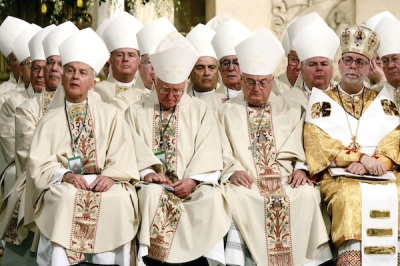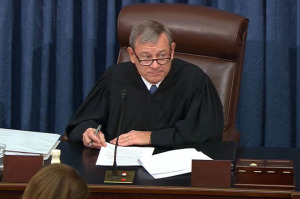Christian Groups to Obama: Back Off Abortion, Gender Transition and Gay Marriage

Prominent Evangelical and Catholic groups jointly warned that a proposed Department of Health and Human Services rule regarding abortion, gender identity and gay marriage could erode religious liberty.
The National Association of Evangelicals, Southern Baptist Ethics and Religious Liberty Commission, Family Research Council, World Vision and the U.S. Conference of Catholic Bishops and other religious groups jointly submitted comments last week expressing concern that religious groups could be required to engage in actions contrary to their beliefs about abortion, gender identity or gay marriage.
Religious organizations could, for instance, be required to provide abortion referrals or coverage, pay for health costs related to gender transition, or hire, or not fire, someone in a same-sex relationship, even if those actions are antithetical to their beliefs.
At issue is the HHS Office of Civil Rights' proposed nondiscrimination rule in accordance with Section 1557 of the Affordable Care Act.
"We agree that the prevention of sex discrimination in health programs and activities is a laudable statutory goal. Everyone should have access to health care and health coverage," read the letter.

"Religious organizations are exempt from this prohibition if its application would be inconsistent with their religious tenets."
The letter goes on to express concern about the robust definition the proposed rule has for "sex discrimination," which the letter says includes "termination of pregnancy," "gender identity," and "relationship or association," which the letter believes could be applied to same-sex marriage relationships.
"This expansive definition of sex discrimination lacks support in the language and legislative history of Title IX, and is likely to have a detrimental effect on the privacy interests of patients, to interfere in some instances with the effective delivery of health care services, and to infringe upon the religious and moral convictions of health care providers, insurers, and other stakeholders," continued the letter.
"Finally, like Title IX, which Section 1557 mirrors, the regulations ought to have a religious exemption of proper scope. We believe that the changes urged in this letter are critical and that without them, the regulations are unlikely to survive scrutiny in the courts."
Galen Carey, NAE vice president for government relations, said in a statement released Monday that he was hopeful regarding the HHS OCR's consideration of the joint comments.
"We are grateful that our system of government offers the right and opportunity to provide input to government administrators on proposed regulations," stated Carey.
"We hope that the Office of Civil Rights carefully considers our recommendations and issues final regulations that are both lawful and wise, and in the best interest of all Americans."
Earlier this month, HHS OCR announced in a statement that the proposed rule was available for public comment. The purpose of the new rule, explained the OCR, was to expand nondiscrimination policy regarding health care coverage.
"Previously, civil rights laws enforced by HHS's Office for Civil Rights (OCR) barred discrimination based only on race, color, national origin, disability, or age," stated OCR.
"The proposed rule also extends [all] civil rights obligations to the Health Insurance Marketplaces and HHS health programs and activities, and clarifies the standards HHS applies in implementing Section 1557 across all bases of discrimination."
The OCR noted that it was specifically requesting comment on the level of religious exemption that should exist in the proposed rule.
"The proposed rule requests comment on whether Section 1557 should include an exemption for religious organizations and what the scope of any such exemption should be," continued OCR.
"Nothing in the proposed rule would affect the application of existing protections for religious beliefs and practices, such as provider conscience laws and the regulations issued under the ACA related to preventive health services."
Other groups who have signed onto the joint comment letter include Christian Legal Society, Christian Medical Association, Institutional Religious Freedom Alliance, Liberty Institute, and The National Catholic Bioethics Center.





























